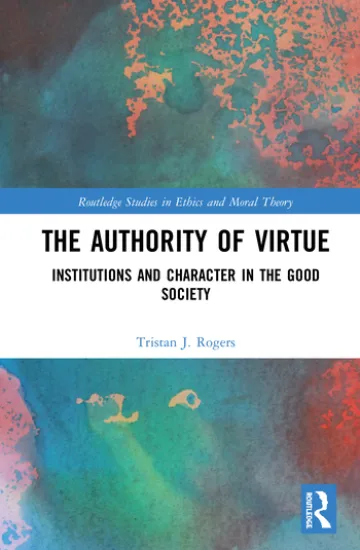New Book by Alumnus Tristan Rogers
The Authority of Virtue: Institutions and Character in the Good Society by Tristan Rogers
Congratulations to UA Philosophy alumnus, Tristan Rogers, on the publication of his book, The Authority of Virtue, published by Routledge in November 2020.
Book Description
This book provides a unified account of the connection between justice and the good life. It argues that the virtues of character require institutions, while good institutions enable persons to live together virtuously.
Although virtue ethics and political philosophy are rich and sophisticated philosophical traditions, there has been an unfortunate divergence, in theory and practice, between the virtues of character and the virtues of institutions. This book has two primary purposes. First, it reorients political philosophy around the concept of the good life. To do so, the author addresses the problem of political authority from a virtue ethics perspective. He also considers whether a political theory oriented around the good life is compatible with Rawls’s notion of reasonable pluralism. Second, the book explains the relationship between the virtues of institutions and the virtues of character. The author shows how institutions support the development and exercise of the virtues of character, while examining specific other-regarding virtues such as justice and friendship.
The Authority of Virtue will appeal to scholars and advanced students working in virtue ethics, social and political philosophy, ancient philosophy, and political theory.

Table of Contents
1. Introduction
Part I: Living Well in a Political Community
2. Virtue and Political Authority
3. Living Well and The Fact of Reasonable Pluralism
Part II: The Role of Virtuous Persons in Good Institutions
4. Justice as Lawfulness
5. The Common Good of Political Friendship
Part III: The Role of Good Institutions in Living Well
6. The Constraining Role of Institutions in Living Well
7. The Formative Role of Institutions in Living Well
8. Conclusion

